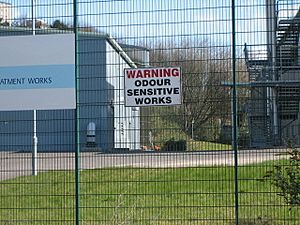Political correctness facts for kids
Political correctness (often called PC for short) is about using words and actions that are respectful and don't upset or offend any group of people. It's important for everyone to be treated equally, fairly, and with dignity. Sometimes, words that were used a long time ago might now be seen as unkind to certain groups. When these words are changed to be more respectful, the new words are called politically correct.
Sometimes, people use the term "politically correct" in a joking or critical way. They might say it when they feel that efforts to avoid offense have gone too far.
Contents
History of Political Correctness
The idea of political correctness has been around for a while. The term itself started being used in the early 1970s. However, it became more common in a negative or mocking way in the late 1980s, especially in America.
Examples of Politically Correct Language
Politically correct words and terms are used to talk about differences between people or groups in a way that is not offensive. These differences can be about race, gender, beliefs, religion, or if someone has a mental or physical disability. It's about respecting everyone, no matter how they are different from what is usually considered the norm.
Gender and PC Language
Throughout the 20th century, women worked hard to gain the same rights as men. This effort led to changes in language to make it more fair and inclusive. For example, job titles that used to only refer to men, like "lineman" or "postman," are now often changed to gender-neutral terms. You might hear "lineworker" or "letter carrier" instead. The word "chairman" is often replaced with "chairperson" or simply "chair." Also, instead of "mankind," people often use "humankind" to include everyone.
PC Language in Medicine
When talking about people with mental disabilities, the old term "mentally retarded" (sometimes called "M.R.") is now rarely used. Instead, people might say someone has "special needs" or "Intellectual Disabilities" (I.D.). This change helps to be more respectful.
Similarly, people who cannot see are often called "vision impaired" instead of "blind". Those who cannot hear are called "hearing impaired" instead of "deaf". And someone who cannot speak is never called "dumb," but rather "mute" or "without speech." These changes in words help to show more respect and understanding for everyone.
See also
In Spanish: Corrección política para niños
 | Lonnie Johnson |
 | Granville Woods |
 | Lewis Howard Latimer |
 | James West |


